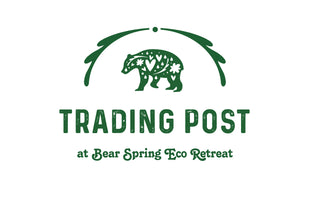A Case for Making Producers Responsible

After more than a decade of experience owning and operating a business that specializes in making use of recycled materials, I can honestly say, recent plastic waste reduction policy updates fall far short of making any sort of impact.
In previous blogs, I have written about induced demand. This concept generally applies to auto infrastructure “suggesting that building new highways can actually increase traffic congestion over time”. Additional dedicated space for cars encourages more people to drive which in turn creates an even more traffic. The same concept can be applied to plastics. With the belief that plastic will be responsibly diverted from landfills and recycled, consumption of plastic products have increased dramatically with only a small percentage actually being recycled.
Unfortunately, the cost of clean up is always downloaded on the individual. As soon as you purchase an item, the waste management costs become your responsibility. If you live in a city, you pay taxes and fees to cover the cost to collect waste. Those costs include transportation, both fuel, equipment and vehicles; wages for workers to perform the service; land and building costs to sort and store it; and pollution costs to clean up soil, air and water that become contaminated by it. If you live rurally, you often have to transport waste yourself to refuse centers. These costs are often called hidden costs. Consumers don’t consider these costs at the time of purchase. When hidden costs are not accounted for, products seem cheaper than they really are. A good example of this would be paper take-out cups versus reusable cups. The paper cup might only be worth pennies in comparison to reusable cups that can cost up to $50 for a high quality insulated one. Once used, paper cups become a financial burden to dispose of. The reusable cup can be used over and over again and will last for years without adding anything to the waste stream.
Another way that consumers pay for the cost to manage waste is through deposits. Every time you purchase a bottled drink for example, you pay a small fee that you can then get back if you return the container to a recycling depot. There are deposit fees or eco-fees on other items too, like vehicle tires. The problem, however, is that many of these items never get returned for recycling and end up as litter in our environment.
Recent policy updates to reduce plastic waste might look progressive but in reality are not even making a dent in the problem. In BC, these new regulations include restrictions on food service accessories (already in effect); restrictions on plastic shopping bags, food service ware, oxo-degradable plastics (in effect this July, 2024); restrictions on PVC film wrap (effective in 2028); and restrictions on polystyrene foam meat trays (effective 2030). The above list does not even touch the bulk of plastic used for all other food production and sales which include, bread bags, chip bags, candy wrappers, cereal bags, frozen food bags, all kinds of plastic containers, plastic lids, plastic seals, clam shells, meat diapers, produce sticker labels, bread bag clips, toothpaste tubes, price tags, plastic wrap, plastic lining, styrofoam packaging, plastic molded packaging….the list goes on and on. The bulk of plastic waste comes from the food industry. Approximately 36 per cent of all plastics produced are used in packaging, including single-use plastic products for food and beverage containers, approximately 85 per cent of which ends up in landfills or as unregulated waste. That’s a significant amount of plastic, intended for single use, that is not captured for recycling. Although cigarette butts are the most common type of plastic waste found in the environment, food wrappers, plastic bottles, plastic bottle caps, plastic grocery bags, plastic straws, and stir sticks follow closely behind.
What we need is a cultural shift in thinking about how we expect products to be packaged for consumption and who is responsible for managing that waste. We need to start adopting better ways of distributing products. We need to embrace bulk products and refill stations and eliminate any kind of excess packaging that will eventually become part of the waste stream. We need to ban any and all items that cannot easily be recycled or composted. And we need to hold producers accountable. These regulations need to be applied at the time of production and not later in the distribution process like it currently is. Consumers get very little choice in what and how much packaging products are delivered in. On an individual basis, we’re not capable of capturing the bulk of the waste created under our current system. The rules are confusing. Plastic producers and businesses that use plastic to package and distribute their products wash their hands of any responsibility once their products are purchased. In fact, some companies receive subsidies generated from deposits and eco-fees to provide recycling services, yet the onus is on the consumer to make sure those items are returned to proper recycling locations. These locations are not always easy or convenient to get to.
One way to make it very simple to regulate could be to create a law requiring companies that produce any kind of plastic, and/or distribute their products in it, to be 100% responsible for capturing and recycling said waste. Instead of recycle symbols, packaging should be mandated to include the logos of the companies responsible for producing it. To make this law enforceable, all producers and distributors must be required by law to print their company logos on these plastics making it easy to identify who’s responsible. Companies would then be made responsible for picking up and recycling any trash with their logo on it. Companies would be required to cease operations or pay hefty fines until all waste produced by them is cleaned up. If we make producers financially responsible, they will be encouraged to find ways to reduce waste and distribute products in more sustainable and innovative ways. With zero tolerance starting at the top, we can create a cultural shift in how products are distributed and consumed. As long as companies can download the costs on consumers, waste will be produced. The cycle must be broken.
For some ideas about how a policy like this might work, let’s take a look at a few examples. Consider that Coca Cola distributes beverages in plastic bottles. For every beverage that you purchase from this company a 10 cent deposit is charged to incentivize us to return the bottle for a refund. But, let’s be honest, we’ve all seen the bottles littering our pathways, roads and parks. Many bottles are not being returned. Let’s say we made Coca Cola responsible for cleaning up all those cans and if they failed to comply, they would be fined or forced to cease production until they complied. Their logo is already printed on the bottle. We know who is responsible. In order to avoid costly cleanup or fines, Coca Cola is going to do a lot better job of making it easier for people to recycle their packaging or they’ll be forced to find a better way to distribute their product without wasteful packaging. They are also likely to start building a culture around being responsible and less careless. When we rely on a system that makes individuals responsible we don’t have a way to ensure compliance. But if we shift the responsibility to the producer we can. This same policy could be applied to any business that produces candy wrappers, chip bags or even aluminum cans or tires and any business that distributes products in plastic or made of plastic. Cigarette makers should be required to use 100% easily compostable materials in their products too.
We already have many tools available to make this shift possible.We have lived without unnecessary plastic before, and we can do it again. Glass, paper, cardboard, and aluminum are all highly recyclable and significantly more sustainable than plastics. Much of our time and effort on recycling is spent addressing plastics. By shifting the responsibility to the producer, we’d have more time and resources available to implement zero waste solutions such as more bulk distribution. Cereals and dried goods could only be sold in bulk form. Liquid products such as soap, syrups and pastes could be distributed at refill stations everywhere. Reusable containers should be readily available with easy pickup and drop off options for reuse. There are grocery stores, such as the Kootenay Coop, that offer a discount when you bring in your own container when purchasing bulk items. This is a step in the right direction. We could standardize a bulk container distribution system. Take-out restaurants could adopt a reusable dish service like the University of Alberta just adopted. The service makes it easy for consumers to return the dishes for washing and reuse.
Food waste reduction could finally be realized since consumers would only be buying what they need rather than standardized package volumes. Don’t forget that packaging adds to the cost of the product. This is especially important to remember during a time when food costs are rising rapidly. Companies spend a lot of money developing creative packaging to sell their products. Consumers need to be more aware these gimmicks cost money. Do you really want to pay for unnecessary packaging when you could bring your own container or bags? Is it really worth the convenience when you have to worry about what happens to the packaging after you use the product?
Relocalizing food production is also going to be very important when it comes to reducing waste. Food transportation not only creates a carbon footprint based on fuel emissions, but also from refrigeration and packaging. If packaging is restricted, food will need to be produced closer to home so that it can be purchased when harvested. Local food production is healthier too. Food starts to lose valuable nutrients the moment it’s picked. Local food is good for your health and the environment. A shift in policies concerning food packaging would result in another added benefit, food security!
In conclusion, as citizens, we spend a lot of time, effort and resources trying to manage plastic waste without much success. We even pay all the costs for this mess. Legislation regulating the production and distribution of plastic is complex with few positive results. Let’s simplify the system and shift the responsibility back to producers.
Image from Greenpeace


Leave a comment